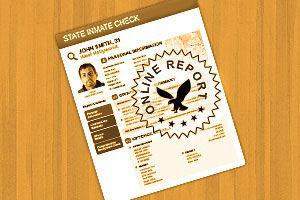Kansas Public Records
The mission of this website is to provide all Kansas citizens with the right to obtain, preview, and examine public records. This ensures that these residents are given access to government documents, which is in accordance with the Kansas Open Records Act. This law specifies that all government information and records are presumed accessible to the public.
The main purpose of the Kansas State Records website is to give the general public access to these records easily and effectively, as is their right. These records can be obtained without submitting personal information unless a court order or law requires a record to be classified as confidential.
Criminal records, court records, and vital records from over 25 million transparent public records are available on this website.
Are Kansas Records Public?
Most Kansas records are public except when exempted by law. The Kansas Open Records Act asserts that all citizens have a right to access public records. Pursuant to the act, interested persons can submit a public records act request to inspect or obtain copies of public records held by different government agencies. Doing this usually involves finding the agency that created or received the record as well as contacting the custodian in charge of maintaining the record. A requester’s right also extends to taking photographs and videos of the record while it is with the custodian.
Record custodians may create conditions for obtaining Kansas public records, including charging fees and requiring written requests. However, the condition should not be unreasonable. Also, any fee charged should not exceed the actual cost of making the record available. This includes the cost of delivery, making copies, and staff time. Kansas public records that are open to the public generally include:
- Public court records
- Public incidence reports
- Public bankruptcy records
- Public sex offender information
- Public arrest records
- Public inmate records
Requesters interested in obtaining public records will need to submit a request to the custodian. Before fulfilling the request, the record custodian may require a written request and fees, and the requester is obliged to provide both. Record custodians may deny requests if either requirement is not complied with. Requests for exempted records may also be denied.
Some public records are also accessible to the general public for free via online databases maintained by government agencies. For instance, one can conduct a free public data search on sex, violent crimes, and drug offenders using the Kansas state registered offenders registry.
Note: The Kansas Open Records Act binds only government officials, including state subdivisions, officers, offices, agencies, or instrumentalities. Record custodians do not have an obligation to provide audio or visual items unless they have been shown at a public meeting of the government entity maintaining the record.
How Do I Find Public Records in Kansas?
Any person can find public records in Kansas through a request to the record custodian. The request may be to inspect or make copies of the record. The Kansas Open Records Act mandates record custodians to make records available once a request is received. If a custodian denies a record request, the custodian should clearly state the reason for the denial and the law relied upon in denying the request. A requester can use the following steps to obtain Kansas public records.
- Determine the record to be inspected or obtained
Any person that wishes to obtain a public record would need to first decide on the record they want. They should also decide whether they want to merely inspect the record, make copies, or have copies delivered. Electronic records may be available for some records. If this is the case, the requester may attempt to obtain the electronic copy. However, requests should not place too much burden on a public agency. A record custodian can deny a request if complying with it will place too much burden on the custodian. - Identify the record custodian
The Kansas Open Records Act only obliges the record custodian to make the record available. Therefore, any request should be directed to the custodian. The Open Records Act defines the custodian as any public officer or employee responsible for maintaining public records, regardless of whether the records are in their personal possession. A custodian under the Act also includes individuals appointed by the official custodian to make the records available. If the requester does not know the record custodian, they may send a request to the public agency in charge of the record. Public agencies are required to provide, upon request, the name of the record custodian, office hours, fee schedules, and procedures for obtaining public records. - Send a request
The requester can send the request for the record once they know the custodian. Record custodians can insist on written requests pursuant to Kansas Statutes Annotated 45-219(a). Only the requester’s name, address, and a description of the record is necessary for the request. Any requirements by the record custodian should not require more information. Generally, public agencies would make guidelines as to how requests should be made pursuant to Kansas Statutes Annotated 45-220(a).
Using Third-Party Sites
Some public records may also be accessible from third-party websites. These non-government platforms come with intuitive tools that allow for expansive searches. Record seekers may either opt to use these tools to search for a specific record or multiple records. The majority of third-party Kansas public records search websites usually offer a broad selection of public records. Vital records, arrest records, and criminal records are a few examples, but not all of them. However, users must typically provide enough information to assist with the search such as:
- The name of the subject involved in the record (subject must be older than 18 or not juvenile)
- The address of the requestor
- A case number or file number (if known)
- The location of the document or person involved
- The last known or current address of the registrant
Third-party sites are not sponsored by government agencies. Because of this, record availability and results may vary. Furthermore, certain types of public records can only be ordered online through third-party websites. For example, the Kansas Department of Health has no provision for ordering vital records they maintain online.
How Do I Look Up Public Records in Kansas for Free?
Any person can look up some public records in Kansas for free, depending on the record, the record custodian, their expectations, and the request. Record custodians often allow inspection of records without any fees. In agencies where custodians allow the inspection of records, there are usually terminals and lobbies. For example, the Shawnee County Recorder’s office provides public access computers at their office that interested persons can use to look up county mortgage and deed records. Others might maintain an online repository where the general public can access public records. For instance, some county clerk offices offer free access to a searchable online database of the real estate and public land records they maintain. Johnson and Sedgwick counties are two instances of these counties.
Interested persons may visit the records custodian during business hours to inspect the records. Courts usually allow the physical inspection of court records. With this, there is public access to free Kansas public records. Other Kansas public records that individuals can inspect for free include bankruptcy records, arrest records, sex offender information, and incidence reports. In some cases, a requester may choose an electronic copy of a record to obtain free public records in Kansas. Doing this prevents the payment of fees for making copies of the record. Additionally, some records are accessible online for free through a free public record search database maintained by government agencies. An example is the Kansas Bureau of Investigation Public Offenders Registry.
Kansas public records have been created since the year 1885, and these records come from all 105 counties in the state. Over the past three decades, public records have been digitized, meaning both governmental and third-party websites and organizations can offer these records with greater reliability. This helps to ensure Kansas abides by the commitment of the United States of America to remain a fair and just society for all.




